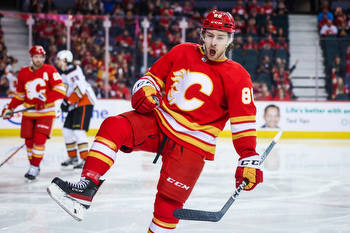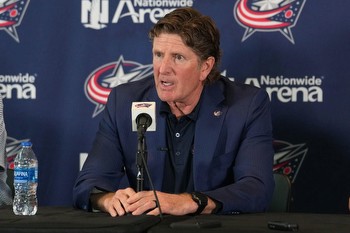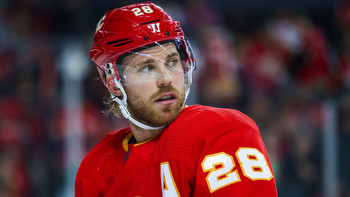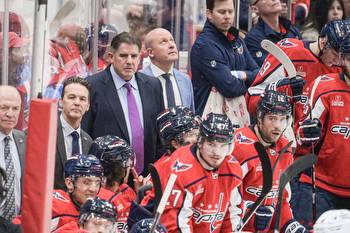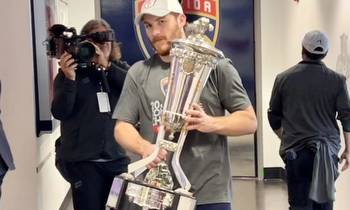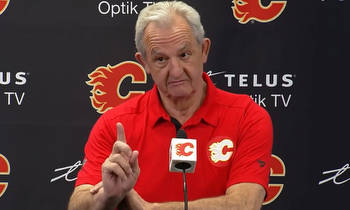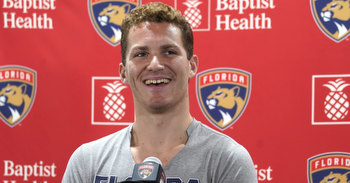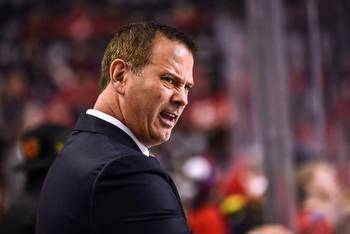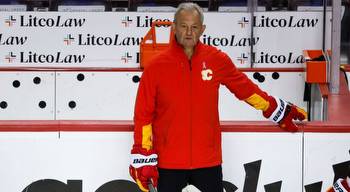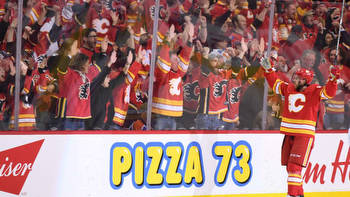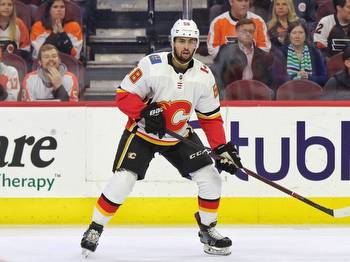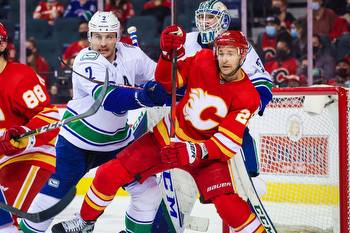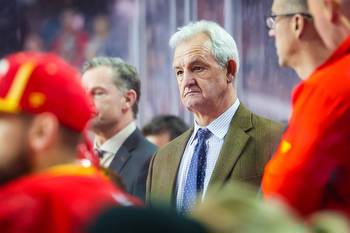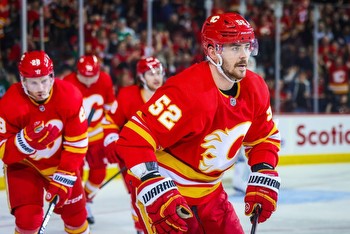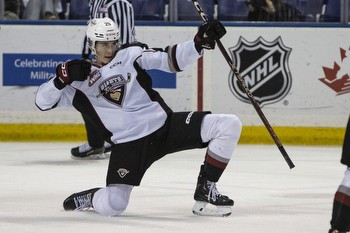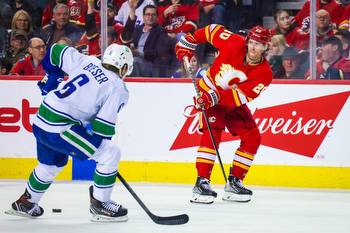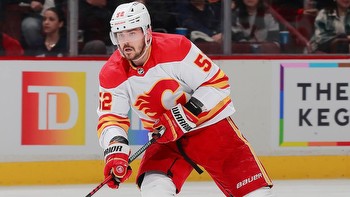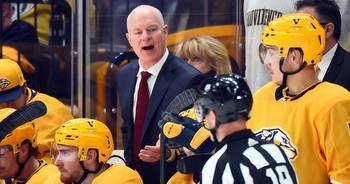Duhatschek: Flames’ post-Treliving offseason should be full of drama, big decisions
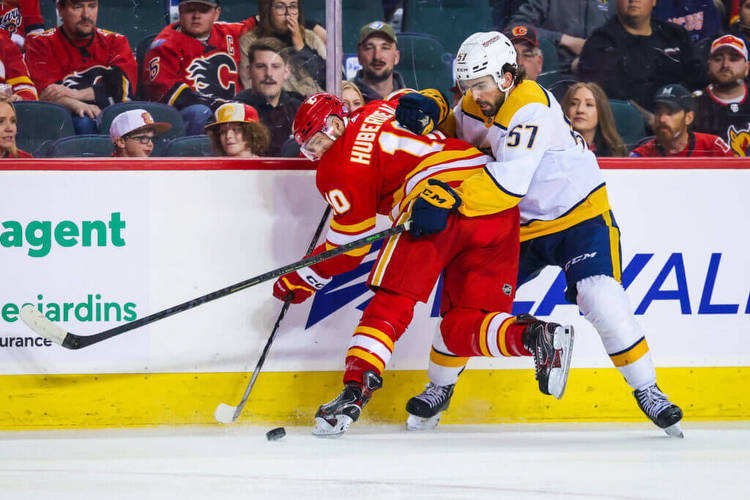
Six days ago, the Calgary Flames were officially eliminated from playoff contention by the Nashville Predators and it was the perfect punctuation mark on a season that went off the rails, almost right from the start. The Flames had come from behind to tie the game against a Predators team that, on paper — because of injuries and trade deadline departures — had no business being even close.
In overtime, the Flames had multiple chances to win, but couldn’t get the critical winning goal. In the shootout, they scored first and needed one save from goaltender Jacob Markstrom — against Cody Glass, the 236th-highest scorer in the NHL — but Markstrom couldn’t come up with it. And when they needed one more goal to keep their season alive in the shootout, coach Darryl Sutter inexplicably put a trade-deadline depth forward out on the ice (Nick Ritchie), instead of their leading goal scorer this year, Tyler Toffoli, or Elias Lindholm, a 42-goal man last season.
Or even Andrew Mangiapane, who after a slow start, was heating up. Actually, the Flames’ two best shootout options were sitting in the press box watching the game — prospects Jacob Pelletier or Matt Coronato, both former first-round draft choices.
Let’s face it, these days, the best way to win the gimmicky shootout is with players that grew up on it, practiced it, and have a variety of moves to unveil as they close in on the unsuspecting goaltender. There’s a reason teams all around the NHL put young skill in the lineup. Because they’re great in the shootout and effective in three-on-three overtime. It’s their thing.
Young players everywhere around the NHL were getting a chance to play these past few weeks as their college seasons ended — everywhere but in Calgary. The Flames didn’t turn to Pelletier, Coronato or the rising goaltending star, Dustin Wolf, until the final meaningless game of the regular season. When it was too little, too late.
And that was their season in a nutshell: Not enough key saves and not enough key goals at the defining moments of the season.
That’s how you lose a league-high 30 one-goal games. Sutter is a crafty contrarian and has been his entire coaching life. That will never change. The Flames clearly needed a spark. Potentially, they could have gotten it from any of those young players. But Sutter’s playbook rarely varies — he prefers the safe, low-risk veteran path.
This – a year out of the playoffs, after a 111-point season the year before — was the predictable outcome. Because this is what safe gets you. Safe gets you close. But this year, it also had you always chasing. And chasing games consistently night in and night out wears on a team mentally. It isn’t a winning strategy in the long run. And so on Monday, when the dust had finally settled a little and the page turned to next year, the first casualty was general manager Brad Treliving.
Officially, Treliving and the team mutually agreed to part ways, ending Treliving’s nine-year tenure at the helm. He was a bold manager on the trade front and a shrewd manager of the salary cap, getting many players signed to long-term extensions, which proved to be favorable deals for the team.
But what he couldn’t do was get the team to have any sustained playoff success. How much of that is on the GM that builds the team and how much on the coaches that can’t find a way of winning a series and how much on the players, for showing this year anyway, a complete inability to rise to the occasion?
In the end, the Flames were let down not just by one thing, but by all those things — goaltending, scoring, coaching. In short, there was a lot of blame to share. And the only problem when there’s a lot of blame to be shared is, who do you single out to sacrifice? Because when you enter the season as the fourth betting choice to win the Stanley Cup and then miss the playoffs, somebody is going to be tossed overboard.
The offseason is still young for this. In this particular case, Treliving made the decision to move on per the Flames.
Don Maloney, who was recruited into the Flames’ organization by Treliving, and said he knew of Treliving’s intentions last Wednesday, will take over as president of hockey operations and interim general manager. He will be tasked with hiring a full-time replacement. There is a strong internal candidate in Craig Conroy, who has been patiently honing his managerial skills as an assistant GM on the staff. Maloney will be familiar with his work. Maloney ruled himself out as the full-time GM.
Conroy, who had a successful playing career with the Flames, mostly as Jarome Iginla’s primary center, has strong people skills, which will be necessary for whoever happens to next run hockey operations in Calgary.
A few weeks back, I bumped into Barry Trotz, who is about to take over the GM job in Nashville from David Poile. Trotz was a successful long-time coach, but this is his first crack at being a GM. When we talked about the skill set necessary to do the GM job well, Trotz said it was primarily about managing people. As a coach, you manage 28 to 30. As a GM, you manage many more. On that front, Conroy is eminently qualified. There’s a keen intelligence there, plus, he has the ability to work with people.
Let’s face it, it’s going to be a challenging offseason in Calgary. The “Mr. Fix-It” general manager in Treliving is gone. The old-school coach in Sutter, has time left on his contract. Jonathan Huberdeau’s eight-year, $84 million contract extension is about to kick in. After a historic 60-point year-over-year scoring decline, he’ll have a lot to prove. So will Nazem Kadri. So will Markstrom.
This is not an easy fix.
Until there’s a new GM in place, it’s impossible to know if they’re going to act decisively and change personnel in a meaningful way — or if they will rely on a series of half measures, which has been the organizational way ever since Murray Edwards took control of the ownership group. Philosophically, the history of the Flames organization is the following: It’s all about patching and plugging, on the grounds that the bad years aren’t — deep down — as bad as they look. And if you can just fix the overtime record and get the goaltending back to where it was a year ago, then maybe you can get by with just a tweak.
The net result is you can have a bad season followed by a good season, and go on that way endlessly. But you never really come close, because you never get those core pieces — those Connor McDavids, those Connor Bedards — that can change the course of your franchise in a heartbeat. The Flames haven’t come close for a long time — 2004, when they lost in the Stanley Cup Final to Tampa Bay. So, they’re at a crossroads.
In some ways, the biggest problem in Calgary is that the NHL world has changed since they last won the Stanley Cup in 1989, when it was a 21-team league. The NHL is now a 32-team entity. The game changed and the salary cap changed the way the business of hockey operated. But the Flames are relying on a stay-the-course model that worked well when a high percentage of teams — 16 out of 21 — made the playoffs. Back then, you had to be really awful to miss.
Now, the mushy middle is a lot wider — and it’s like quicksand. Once you land there, you can just get stuck. Which is where the Flames were this year in a season that saw death by a thousand tiny cuts. But unless Ryan Reynolds wants to bid for the Flames if his Ottawa overture falls short, you’re not changing the owner and the owner is a big fan of the coach. Plus Maloney indicated the operating philosophy isn’t about to change.
So that leaves the job of managing the future in the hands of some yet-to-be hired miracle-working GM, who better be practiced in the art of persuasion. Because players will need to be persuaded to stay and a coach is going to need to be persuaded to start using some of that young talent that’s on its way. Offseasons in Calgary have tended to be dramatic these past few years. No reason to think it’ll be any different this year either.


